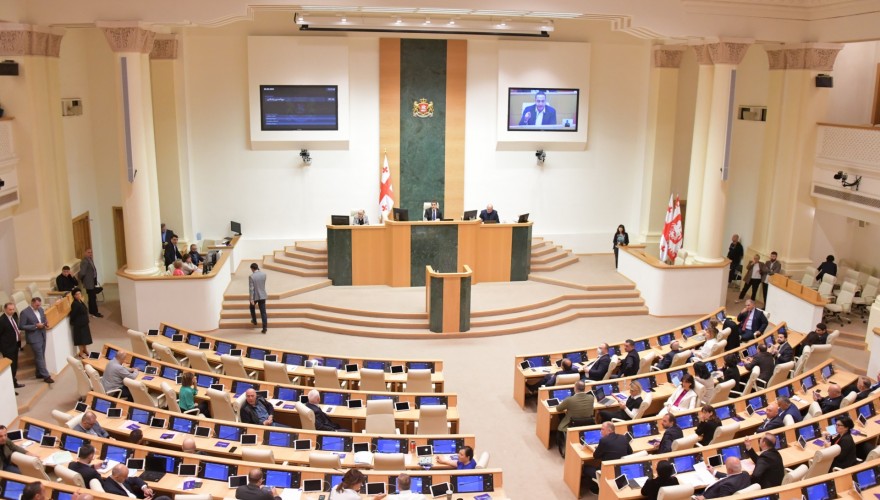Commentary | Amendments to the Defense Code are Discriminatory
Watchdogs criticize the amendments to the Defense Code adopted by the Parliament on September 21. Twelve civil society groups, united in the “No to Phobia!” platform, say the amendments are discriminatory and do not meet human rights standards.
What do the amendments do?
The amendments to the Defense Code
- Remove specific grounds for deferment of military service,
- Expand the pool of individuals subject to non-military alternative service and include clergy in this category.
- Being a priest or studying to become one will no longer serve as grounds for deferring military service UNLESS one belongs to the Georgian Orthodox Church (GOC).
The GOC clergy and students are exempted from both military and alternative service by the Constitutional Agreement (also called “Concordat”), which supersedes the law.
Discriminatory?
The Orthodox Church is the dominant religious group in Georgia. The law’s stated legitimate objective is to minimize the evasion of military service. Yet, the watchdogs argue, it creates conditions where a larger group – GOC clergy – are fully exempted, while the smaller one – all other religious groups – are pushed into alternative service.
The watchdogs argue that the amendments create an unjustified difference in treatment between, on the one hand, the clergy of the Orthodox Church, who are fully exempted from military service, and, on the other hand, the clergy of all other religious organizations/unions, who are obliged to perform non-military alternative service. They say this provision breaches the right to be treated equally and protected by the Constitution, and the exemption given to the GOC is discriminatory without justifiable grounds.
Other concerns?
‘The watchdogs argue that the legislative changes are also legally problematic from the point of view of protecting religious freedom, personal data, and the right to privacy.
To decide whether a citizen is exempt from military service, the administration would have to collect data on their religious denomination and store that data in the military reserve’s electronic database. The compulsory disclosure of this information would violate the freedom of faith and religion and the right to privacy.
The watchdogs also note that the explanatory note to the draft Defense Code suggests that one of the reasons for the controversial differentiation in conscription may be to prevent “unscrupulous and fictitious” religious organizations from helping individuals avoid military service. However, this seems to imply that all religious organizations except the Orthodox Church are declared “unscrupulous and fictitious.” This contradicts the principles of freedom of belief and neutrality towards religious organizations that the state is supposed to uphold, making it an illegitimate reason to restrict the rights of individuals.
Constitutional law claim?
Watchdogs refer to the decision of the Constitutional Court, according to which, although one of the valid reasons for implementing differential treatment is to ensure the recognition of the unique historical role of the Orthodox Church in Georgia, as stipulated in Article 8 of the Constitution, the same article “does not aim to strengthen the religious privileges of Orthodoxy, and the granting of a certain right to the Church does not imply the prevention of the enjoyment of the same right by other religious organizations.”
In other words, while the Constitutional Agreement exempts the GOC from military service, this exemption is without prejudice to the rights of other religious institutions to enjoy the same right if the principle of equality of treatment were to be followed. According to the watchdogs, the legislator’s decision to apply the exemption exclusively violates the principles of the Constitution.
This post is also available in: ქართული Русский
